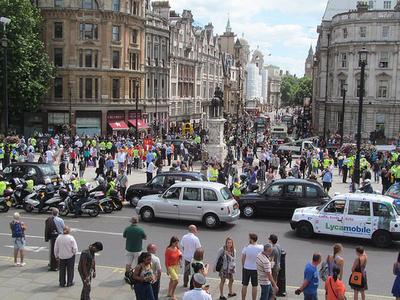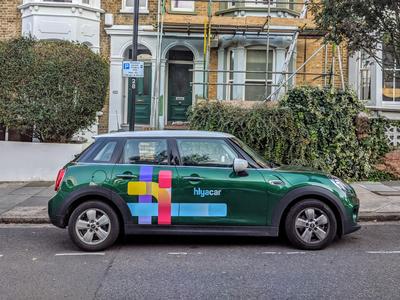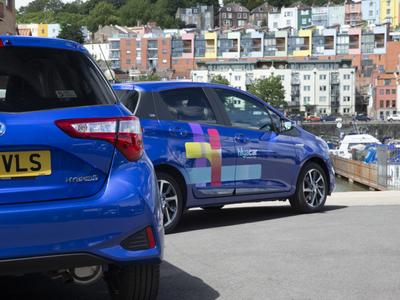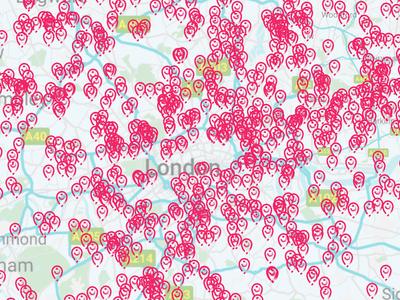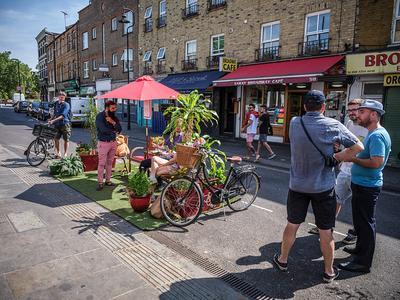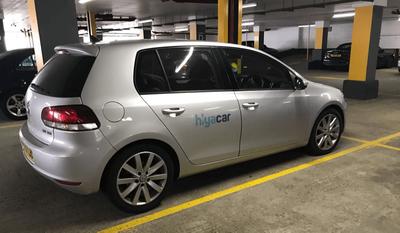
Car clubs vs. peer to peer car rental - the differences
The other day I talked about how Hiyacar represents a ‘third generation’ car hire in the UK, as a peer to peer car rental. I thought it would be good to discuss the main differences between traditional car clubs such as Zipcar and peer to peer platforms such as Hiyacar, as some people might be legitimately confused…
Fleet ownership
This is the key characteristic that defines car share clubs and new peer to peer alternatives. Car clubs own their own fleet of vehicles, whilst peer to peer services don’t own any cars: these are listed and provided by the community. P2P car sharing enables privately owned vehicles to be available for hire. This way, owners transform their cars into assets that can be rented out by other members of the platform and generate an additional income.
In other words, platforms like Hiyacar are a intermediary between car hirers and car owners, like Airbnb or eBay in their own industries (people often refer to Hiyacar as ‘the Airbnb for cars’). To facilitate these transactions between members, the peer to peer car hire platform, as a two-sided marketplace, shall provide:
- An easy to use platform where both sides can transact securely.
- A peer to peer car insurance that covers both the hirer and the owner that supplies the vehicle. Hiyacar’s exclusive peer to peer car rental policy is provided by AXA.
- A number of verifications that ensure eligibility of the parties (for example, driving licence and DVLA checks) and a peer to peer review system.
To the contrary, Zipcar and other car clubs act more like a ‘landlord’: hirers rent directly from the car club, there is no community aspect to it, and the profits only go to the corporation (in case of Zipcar it’s Avis), rather than an individual.
Variety of cars
Car clubs usually stick to a limited range of cars. They have to buy or lease them, and they’ll get better deals if they get the same models in high volume. More importantly, for them it’s about finding a cheap enough car that does the job, so they can offer a good hourly rate and/or get a handsome margin. For peer to peer car hires, this limitation does not exist. At Hiyacar for example, we accept any kind of car model and brand, as long as it’s roadworthy and our insurance covers it. This means that you don’t only find Ford Fiestas and Golfs as you do on Zipcar, but also Mercedes, BMWs, Land Rovers and a long etcetera.
Pricing
Car clubs tend to have a fixed price component (a monthly subscription fee like a gym for example) and a variable component (a cost per hour and/or mile). This makes them rather expensive for longer trips, as the cost per hour and mile will add up very quickly. It’s also expensive if you don’t use the service very often, as you will have to pay the monthly fee regardless.
Peer to peer car hires don’t have a membership charge: you can join the community for free. Then you’ll pay per hour or per day, and that’s it. Hiya owners generally include a very generous allowance of 300 miles per day (and a reasonable cost of 0.30 per mile beyond that).
Access to cars
Carshare clubs often give their members a smart card that can be used to open the cars they’ve booked — the key to start the engine and lock & unlock the car can be found inside. This feature has allowed car clubs to spread their vehicles across strategic locations within the city, leaving the ‘manual’ key handover of traditional car rental companies behind. In principle, peer to peer car rental services also need a manual handover: car owner and driver need to meet to complete the car pick-up and drop-off. However, Hiyacar has introduced a new technology that completely removes this requirement. Those cars equipped with QuickStart can be opened by the driver using our app. In this case, access to vehicles becomes seamless and very similar to car clubs’.
Scale
This characteristic talks more about the potential magnitude of peer to peer in comparison to car share clubs. Car clubs always have to deal with a significant overhead, that is, owning or leasing their cars. This limits their growth outside large cities. The peer to peer model erases this (high) fixed cost, making it viable in smaller cities and even in lower-density rural areas. Once Hiyacar dominates London, I can see it quickly spreading across the entire UK (which is already happening to a degree, organically).

